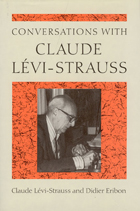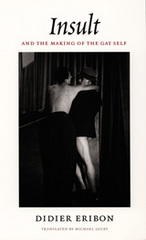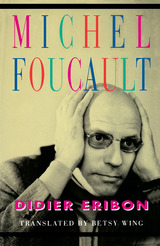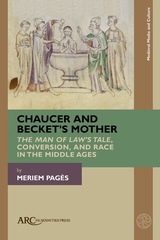
Now available in English, the conversations are rich in Lévi-Strauss's candid appraisals of some of the best-known figures of the Parisian intelligentsia: surrealists André Breton and Max Ernst, with whom Lévi-Strauss shared a bohemian life in 1940s Manhattan; de Beauvoir, Sartre, and Camus, the stars of existentialism; Leiris, Foucault, Dumézil, Jacob, Lacan, and others. His long friendships with Jakobson and Merleau-Ponty are recalled, as well as his encounters with prominent figures in American anthropology: Lowie, Boas (who suddenly died in his chair beside Lévi-Strauss at a banquet at Columbia University), Benedict, Linton, Mead, and Kroeber.
Lévi-Strauss speaks frankly about how circumstances and his own inclinations, after his early fieldwork in Brazil, led him to embrace theoretical work. His straightforward answers to Eribon's penetrating questions—What is a myth? What is structuralism? Are you a philosopher?—clarify his intellectual motives and the development of his research; his influential role as an administrator, including the founding of the Laboratory of Social Anthropology and of the journal L'Homme; the course of his writings, from Elementary Structures of Kinship to The Jealous Potter; and his thoughts on the conduct of anthropology today.
Never before has Lévi-Strauss spoken so freely on so many aspects of his life: his initial failure to be elected to the Collège de France; his reaction to the events of May 1968; his regrets at not being a great investigative reporter or playwright; his deep identification with Wagner, Proust, and Rousseau. This is a rare opportunity to become acquainted with a great thinker in all his dimensions.

Eribon describes the emergence of homosexual literature in Britain and France at the turn of the last century and traces this new gay discourse from Oscar Wilde and the literary circles of late-Victorian Oxford to André Gide and Marcel Proust. He asserts that Foucault should be placed in a long line of authors—including Wilde, Gide, and Proust—who from the nineteenth century onward have tried to create spaces in which to resist subjection and reformulate oneself. Drawing on his unrivaled knowledge of Foucault’s oeuvre, Eribon presents a masterful new interpretation of Foucault. He calls attention to a particular passage from Madness and Civilization that has never been translated into English. Written some fifteen years before The History of Sexuality, this passage seems to contradict Foucault’s famous idea that homosexuality was a late-nineteenth-century construction. Including an argument for the use of Hannah Arendt’s thought in gay rights advocacy, Insult and the Making of the Gay Self is an impassioned call for critical, active engagement with the question of how gay life is shaped both from without and within.

At the time of his death in 1984, at the age of fifty-eight, Michel Foucault was widely regarded as one of the most powerful minds of this century. Hailed by distinguished historians and lionized on his frequent visits to America, he continues to provoke lively debate. The nature and merits of his accomplishments remain tangled in controversy. Rejecting traditional liberal and Marxist "dreams of solidarity," Foucault became the very model of the modern intellectual, replacing Sartre as the figure of the eminent Parisian and cosmopolitan master thinker.
Foucault himself discouraged biographical questions, claiming that he was "not at all interesting." Didier Eribon's captivating account overthrows that assertion. As a journalist well acquainted with Foucault for years before his death, Eribon was particularly well placed to conduct the dozens of interviews which are the cornerstone of this book. He has drawn upon eyewitness accounts by Foucault's closest associates from all phases of his life--his mother, his schoolteachers, his classmates, his friends and enemies in academic life, and his celebrated companions in political activism, including Simone Signoret and Yves Montand. Eribon has methodically retraced the footsteps of his peripatetic subject, from France to Sweden to Poland to Germany to Tunisia to Brazil to Japan to the United States. The result is a concise, crisply readable, meticulously documented narrative that debunks the many myths and rumors surrounding the brilliant philosophe--and forces us to consider seriously the idea that all his books are indeed, just as Foucault said near the end of his life, "fragments of an autobiography."
Who was this man, Michel Foucault? In the late 1950s Foucault emerged as a budding young cultural attaché, friendly with Gaullist diplomats. By the mid-1960s he appeared as one of the avatars of structuralism, positioning himself as a new star in the fashionable world of French thought. A few months after the May 1968 student revolt, with Gaullism apparently shaken, he emerged as an ultra-leftist and a fellow traveler of Maoists. Yet during this same period, Eribon shows, he was quietly and adroitly campaigning for a chair in the College de France--the very pinnacle of the French academic system. This book does more than follow the career of one extraordinary intellectual. It reconstructs the cultural, political, and intellectual life of France from the postwar years to the present. It is the story of a man and his time.
READERS
Browse our collection.
PUBLISHERS
See BiblioVault's publisher services.
STUDENT SERVICES
Files for college accessibility offices.
UChicago Accessibility Resources
home | accessibility | search | about | contact us
BiblioVault ® 2001 - 2024
The University of Chicago Press









